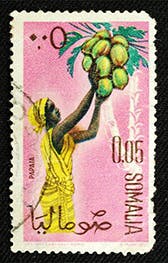Forced Migration: The Experiences of Somali Women Living in the United Kingdom
Researchers
Barbara Howard-Hunt, Senior Lecturer, Centre for Social Care, Health and Related Research
Background
This study was conceived in response to concerns expressed by a group of displaced Somali women now living in Birmingham.
It notes a lack of understanding within their new community about their experiences of migration and subsequent needs, as reflected both in policy and academic literature. Research was carried out at the Centre for Social Care, Health and Related Research.
Aim of research
 This project aimed to:
This project aimed to:
- better understand the migratory experiences of some 17,500 Somali women now living in the Birmingham area (Information Centre about Asylum and Refugees [ICAR], 2006)
- account for the experiences of Somali women before, during and after migration to England
- investigate the strategies used by Somali women in adapting to their new environment
- make recommendations that might inform policy and service provision
Method of research
This project consisted of a series of detailed, descriptive, phenomenological accounts of the 33 Somali women who participated. This methodology aimed to make known the lived experiences of those who participated. Interviews and focus groups involving the participants were carried out over a three year period, and subsequently analysed using Giorgi’s phenomenological analytic framework.
Outcomes
Howard-Hunt’s research determined that discourses surrounding refugee women were often presumptive and had a homegeonising effect. Data analysis revealed that although all of the women had shared similar migration journeys, forced migration had impacted on them all differently. It was clear that although some women were adapting to their new environment well, moving towards a state of recovery, others remained trapped on a downward spiral of loss, in a state of anomie.
Rather than facilitating attachment to, and integration into British society, overarching policies that assume similar migratory experiences of all Somali women may, in some instances, inadvertently reinforce the barriers that prevent refugees from adapting to their new environment and rebuilding their lives.
Application of research
This research has broad implications in both professional contexts and for policy implementation. Policies and practice that endorse a ‘one size fits all’ approach may cause many Somali women to remain trapped in what Howard-Hunt describes as a 'downward spiral of loss and trauma'. This study demonstrates the requirement for a practical framework which enables the recognition of vastly differing migration experiences between Somali women refugees.